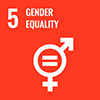Women and teleworking: beyond work-life balance
The difficulties in work-life balance has become greatly important in the societies of the 21st century. An evergrowing number of organisations are interested in promoting and encouraging this approach, with the objective of improving the well-being and quality of life of their male and female workers in addition to attracting and fostering talent, improving productivity and, ultimately, becoming more competitive. In this context, one of the most used measures for achieving such objectives is teleworking. This article analyses, from the point of view of female teleworkers, if this labour system constitutes an efficient strategy for the work-life balance. The methodology used has been qualitative, specifically working with indepth interviews and discussion groups. The sample was composed of women teleworkers with some form of family dependents. The principal results show that teleworking for these female workers is a labour system which goes far beyond work-life balance. This is a kind of logic or mechanism which redefines the unfolding practices and which leads to the creation of new meanings in the realm of work and in compatibilisation with domestic, family and personal life. By practising teleworking, these women are producing a critical discourse with the prevailing labour model, characterised by their long working days which exclude the possibility of a life at the margin of the world of work. They use the possibilities of flexibility which teleworking provides them in order to reclaim their roles as professionals and as mothers, and as a result do not give up either of these roles, making use of teleworking as a tool for revealing a labour market which excludes all that is related to the sphere of care.
ODS


 Ana Gálvez Mozo
Ana Gálvez MozoAna Gálvez is a Doctor in Psychology. She works as Associate Professor in Social Psychology of Work and Organisations in the Psychology degree. She was the director of the Psychology programme from 2011 until 2017. She has been professor of Social Psychology at the Autonomous University of Barcelona and has worked in various organisations of the professional sector in fields related to the promotion of employment and the design of training in companies by means of ICTs. She coordinates the research group TRAGSO (Work, Gender and Society), whose lines of research are focused on analysing the relationship which is established between Gender, Work and Balancing of working, family and personal life, and on exploring how the new labour models, characterised by insecurity and work flexibility, affect and configure the lives of male and female workers and their life projects. She has participated in and directed various competitive research projects on these subjects.



